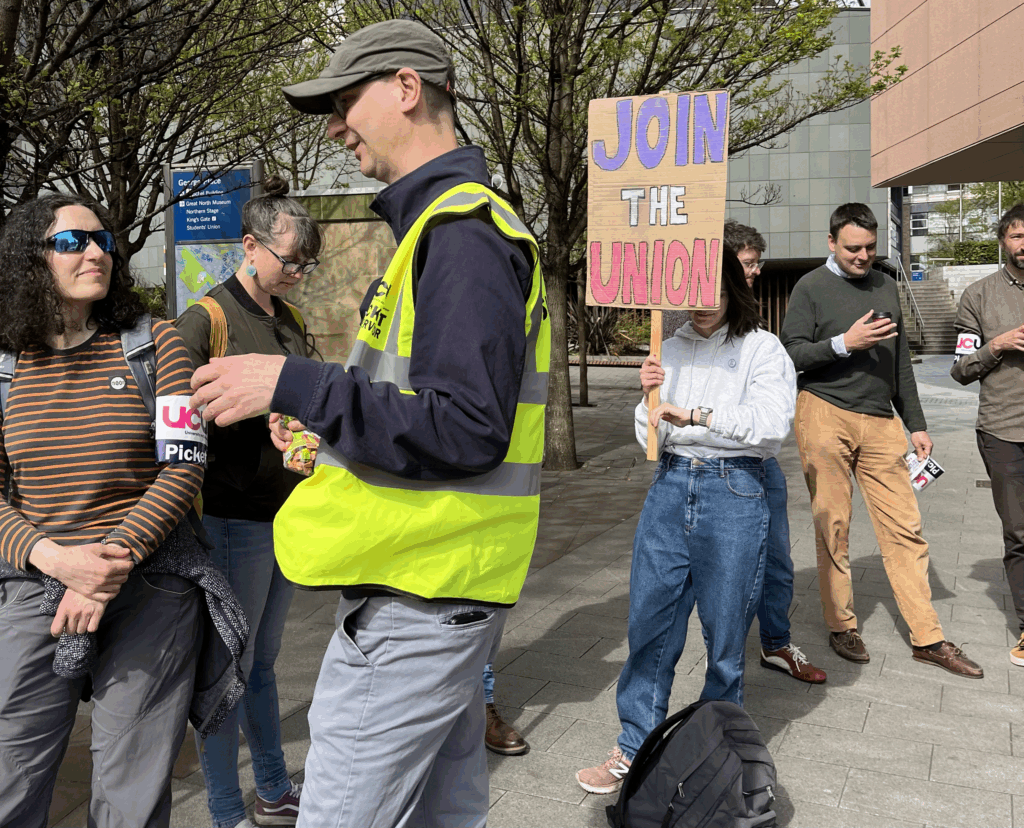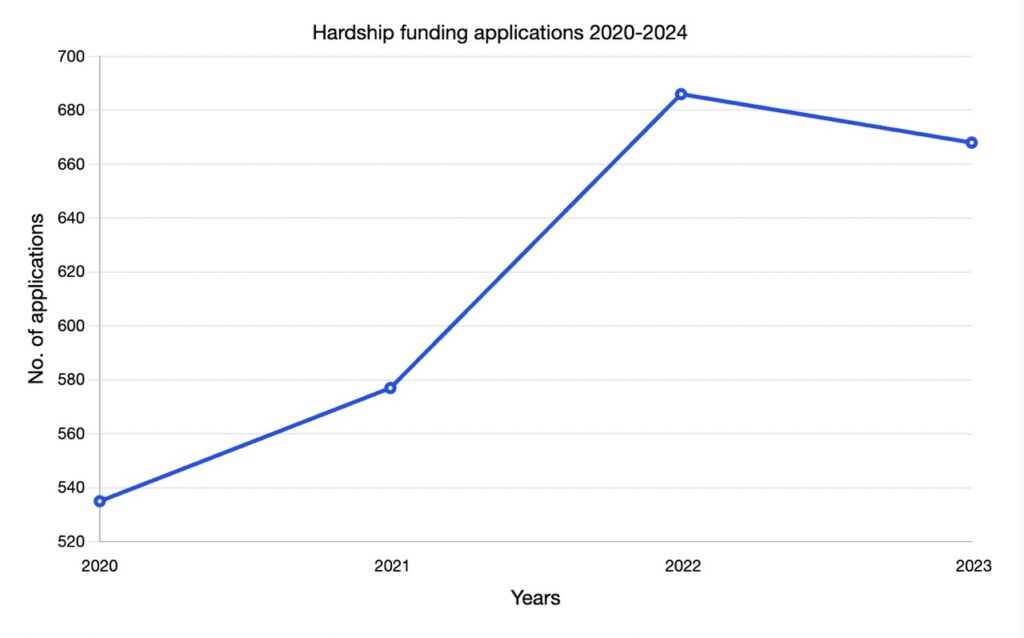
^ Newcastle University picket line
Image credit: Keira Gratton
Rent up 29% per week, lecturers on the picket lines and Newcastle University £35 million behind budget… Amid a higher education (HE) funding crisis, how much do the students affected really know about why university costs are rising nationwide?
Why are Unis underfunded?
In September 2024 Newcastle Vice Chancellor Chris Day revealed a £35 million shortfall in the University budget, which they reportedly aim to correct with “difficult choices and prioritisation”.
Similar stories are unfolding in universities like Cardiff and Durham, where staff cuts and rising accommodation fees are being stretched to cover financial deficits and loans. There are three main reasons why universities across England are having to increase profits and cut costs:
1: Tuition fee cap
Dubbed by news sites a ‘cost of living crisis’, England is currently facing an inflated 3.7% Retail Price Index, meaning that the prices of food and energy are steadily rising. As a result, the costs of other goods and minimum wage are also being boosted, making employing large numbers of staff and affording resources costly for once prosperous universities.
Additionally, since the 2017 rise of tuition fees to £9,250 per year, the cap on tuition prices has meant that universities’ income was kept artificially low in the face of inflating costs. New legislature has now increased tuition fees by £285 for the 2025 academic year. However, if fees had risen in line with inflation, The Week reports that they should have reached highs of £15,000 today.
2: Loss of international students
Emeritus Professor Sir Peter Scott – who was previously the Pro-Vice Chancellor of the University of Leeds, and a board member of the Higher Education Funding Council for England – told us that ” international students have, in effect, been treated as a ‘cash cow’ by universities for years”.
Unlike capped domestic tuition, universities have always charged international students much higher prices. For example, for a Journalism, Media and Culture BA at Newcastle, an international student would pay £23,800 annually, around 2.5x more than a domestic pupil.
New barriers to entry like Brexit changes to visa requirements, the loss of the Erasmus+ international student funding programme, and the “toxic debate around immigration” – said Scott – have deterred international students from studying in England, slashing their £41.9 million contribution to English higher education. To learn more about the barriers putting international students off studying in England, watch our TikTok here.
3: Inaccurate projections?
Whilst the gradual loss of governmental funding is the face of budgeting issues, Scott said that behind the scenes universities may have overestimated international student numbers – “many had made unrealistic assumptions that the number of international students would just go on increasing”.
Signs sporting slogans like “CHRIS DAY ATE MY CAREER” on the Newcastle University and College Union (UCU) picket lines point to overboiling anger at higher management; figures like the Vice Chancellor are being blamed for not predicting “the impact of a shortfall in international student recruitment this year”, which Day said were the cause of the staff cuts. On 27th April, the UCU announced 21 extra strike days and a prospective marking boycott to further protest against these Executive Board decisions.

Image credit: Keira Gratton
How does this affect everyone?
To account for £20 million of financial deficit, Newcastle University has been raising its internal student costs, as well as announcing around 300 staff cuts to lower wage expenses.
With an average 9% rent increase at Uni-owned accommodations, students are struggling more than ever to afford university. A Freedom of Information request by this publication revealed that 510 students had already submitted ‘hardship funding’ applications by April 3rd 2025, almost surpassing the 535 applications submitted across the entire 2020 academic year.

Source: Keira Gratton
Involuntary redundancies are being enforced across the entire teaching body, threatening module options and job security with layoffs at the end of April. Lecturers and students alike on the Newcastle UCU picket line discussed how these unfair cuts will affect us all…
What’s the solution?
Despite the increased media attention on higher education funding and strikes, few parties agree on strategies to reform university earnings.
On Newcastle UCU’s Instagram page, they point out that Vice Chancellor Chris Day earns a lecturer’s annual wage in 21.7 days, suggesting that management should accept wage cuts themselves to cover losses.
Others, like Sir Peter Scott, radically “support free higher education”, pointing to the domestic student focussed HE models in Scotland and Ireland.
Further popular remodellings include advocating for more government subsidy – “universities need to work harder to persuade politicians that they … should have at least as much priority as defence” said Scott –, a lifelong tax on graduates, or even a tax on employing workers with university degrees. But with support split across solutions, only time will tell which direction Education Secretary Bridget Philipson will take the promised “major packet of reforms”.
